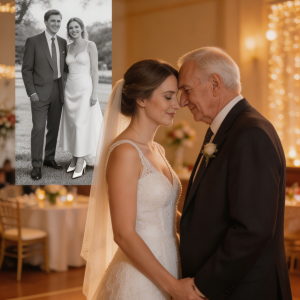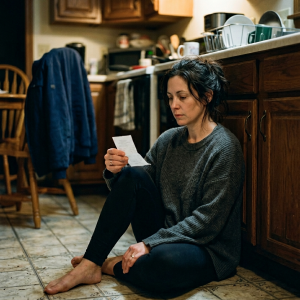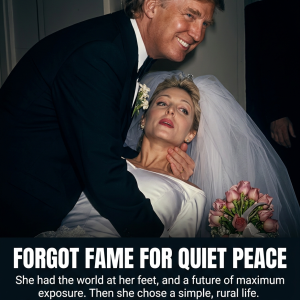Some moments seem small—fleeting even—until they unfold into something you’ll never forget.
One such afternoon, my young cousin Eli knelt in the backyard, his laughter chasing away the heat as chickens clucked lazily around him. He gently scooped up a plump white hen we’d lovingly named Marbles, hugging her with the kind of affection usually reserved for a favorite stuffed toy.
I watched through my camera lens, ready to post a sweet caption online. But then, something strange happened.
Every chicken around us froze.
Not a twitch. Not a blink.
Three roosters stood mid-step, their eyes fixed—unblinking—on Eli and Marbles, as if a silent alarm had been triggered.
I gave a nervous laugh. Eli didn’t notice a thing. He just kept rocking Marbles softly, cradling her like a baby.
That’s when I noticed something was… off.
Boss, our biggest and most aggressive rooster—the one who normally charges toddlers and terrorizes squirrels—began to back away. Slowly. But not from Eli. From something else.
He inched toward the shed.
And the others?
They followed.
But not like birds.
They moved with eerie intent, like they knew what was coming.
Concerned, I started to walk toward Eli. “Hey, buddy,” I said gently, “maybe it’s time we put Marbles down.”
He looked up at me, confused. “She won’t let go.”
“What do you mean she—”
Then I saw his arms.
Thin white scratches etched across his forearms—three of them. Oddly deliberate. Like letters being written.
As I moved closer, the scratches deepened.
The first one was a D.
Then came an O.
And just as I leaned in to make out the third, it became clear: N.
D-O-N.
I blinked. “Don? Who’s Don?”
Eli looked at me with wide, glassy eyes. “I don’t know. But… I think she does.”
I glanced at Marbles, still nestled against his chest. Her eyes were wide open, yet there was something vacant behind them—as if she was looking far beyond us.
Her feathers, usually soft and downy, began to rise just slightly, like she was buzzing with invisible energy.
Behind me, I heard it: the low creak of the shed door.
Boss had reached it—and was now pecking at it in a slow, deliberate rhythm.
Peck. Peck. Peck.
My skin prickled.
“Okay,” I said carefully, “we’re going inside. Now.”
Eli stood, still holding Marbles, who hadn’t moved a feather. But the scratches on his arm had grown darker, as if whatever was writing them had found its rhythm.
Now it read: D-O-N-’T.
“Don’t… what?” I whispered.
Eli’s voice was barely a breath. “I think she’s afraid. Of them.”
We made a beeline for the house.
The roosters had vanished.
Only the wind, the creaking shed, and the giant oak stood sentinel behind it.
As we reached the back, Eli stopped and pointed.
“There,” he said, nodding at a patch of earth. The soil was subtly disturbed, hidden beneath a thin blanket of leaves.
“This is the spot,” he whispered.
I knelt and began to dig.
At first, just dirt. Then roots. Then… something solid.
Metal.
A rusted, heavy box, no bigger than a toolbox. I pulled it out with shaking hands and slowly pried it open.
Inside were bones.
Not a full skeleton. Just fragments—a jawbone, a few ribs, part of a skull. And resting beside them, a weathered leather wallet.
The ID inside was still readable: Donald Whitmer.
My pulse thundered in my ears.
“We have to call the police,” I said.
Eli nodded. “She’s at peace now.”
I looked down.
Marbles, still in his arms, blinked slowly. Her feathers lay flat. The strange tension was gone.
Without a sound, she fluttered from his grip, landed gracefully, and strutted back across the yard like any other chicken on any other day.
I stared after her, stunned.
That evening, the police came. They taped off the backyard, took the bones, and questioned us.
We told the truth—well, most of it.
We said we’d been digging and uncovered something unexpected.
We didn’t mention the part where a chicken spelled out a murder victim’s name on a child’s arm.
The story ran on the news for days:
“Missing Man Found Buried in Backyard—Foul Play Suspected.”
They concluded he’d died from blunt force trauma.
A murder investigation was opened.
But it never went far. No leads. No suspects. The trail went cold—again.
Then, two days later, Nana called.
“I heard about Don,” she said softly. “Did the chickens show you?”
A chill ran through me.
“You knew?”
“I didn’t know it was him,” she replied. “But I knew those birds were guarding something.”
“Why didn’t you say anything?”
“Would you have believed me?” she asked.
She had a point.
After that, life returned to normal. Or close enough.
The roosters resumed their usual chaos. Boss started crowing again. Marbles never let anyone near her after that—not even Eli.
And Eli?
He seemed… freer. Like something heavy had been lifted from his small shoulders.
A month later, he said something that stuck with me.
“She didn’t want revenge,” he said quietly. “She just wanted to be heard.”
I asked him who he meant—Marbles or Don.
He shrugged. “Maybe both.”
Since then, I’ve started listening differently.
To the wind. To animals. To the quiet feelings people don’t always say out loud.
Because sometimes, the smallest voices carry the greatest truths.
And sometimes, justice comes wrapped in feathers and silence—refusing to be ignored.





